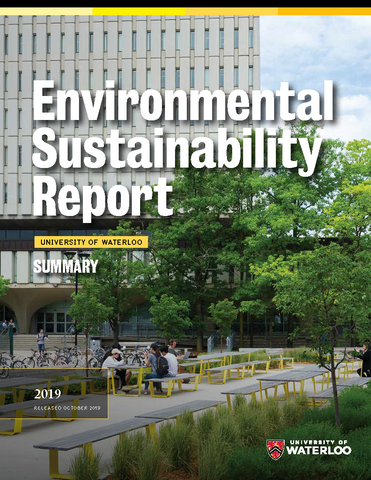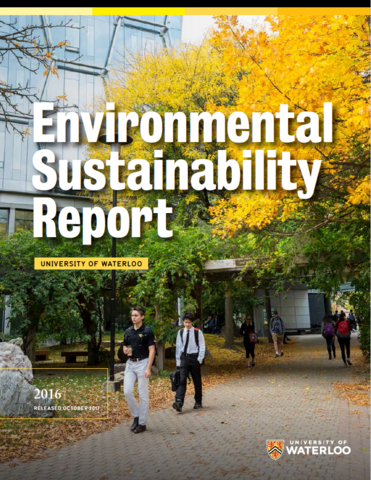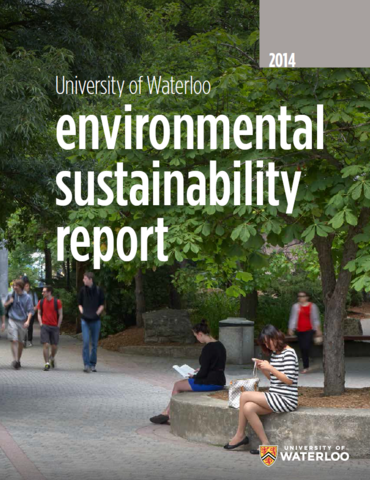2024 Environmental Sustainability Report
Published: Fall 2024
Scope: All campuses, 2023 calendar year
Waterloo's 2024 Environmental Sustainability Report includes case studies, key statistics, and evaluation of progress towards established objectives. As of 2024, 20 out of 27 objectives have been completed or are mostly complete, and the remaining 7 are in progress and on their way to completion. This report also includes a status update for the Shift:Neutral climate action plan.
Some highlights from this year's report include:
- >800 academic courses related to the UN SDGs
- >360 researchers exploring the UN SDGs
- 8.8% decrease in GHG emissions (from Scope 1/2 sources)
- 5% reduction in water intensity since 2015
- 3.9% decrease in energy intensity since 2015
- >1/5 departments Green Office Bronze certified or higher
- 88% of community trips to campus made using a sustainable mode of travel
The 2025 Environmental Sustainability Report is anticipated in November 2025.
UN Sustainable Development Goals report
In addition to Waterloo's core reporting on its progress against the Sustainability Strategy, Waterloo also launched in April 2022 its first report tracking activity that supports the United Nations Sustainable Development Goals (SDGs). The SDGs are a global development framework agreed to by all countries, to guide social, environmental, and economic sustainability for all from 2015-2030.
Waterloo's standalone SDG report tracks how the campus is taking action to support the SDGs through teaching, research, operational practice, and community engagement.
STARS reports

Waterloo is also rated Gold through the Sustainability Tracking, Assessment, and Rating System (STARS), developed by the Association for the Advancement of Sustainability in Higher Education (AASHE).
STARS measures various ways that colleges and universities are supporting sustainability. The framework includes over 60 indicators that cover Academics, Engagement, Operations, Planning and Administration, and Innovation and Leadership.
Report history
| Year of Submission | Points Earned | Overall Rating |
|---|---|---|
| 2024 (current) | 68.36 | GOLD |
| 2021 | 53.92 | SILVER |
| 2018 | 45.51 | SILVER |

Impact Ranking 2024
- Ranked 101-200 globally out of nearly 2,000 institutions
- Ranked 42 globally for SDG 11 - Sustainable Cities and Communities
- Ranked 1 in Canada (tied) for SDG 7 - Affordable and Clean Energy
Visit the Times Higher Education Impact Ranking to learn more.

Sustainability Ranking 2025
- 60 overall globally, in the top 3% of over 1,700 institutions
- 6th in Canada
- Top 100 globally for Environmental Impact
- Top 30 globally for Social Impact
- Top 100 globally for Governance
Visit the QS World University Rankings Sustainability Rankings to learn more.






















